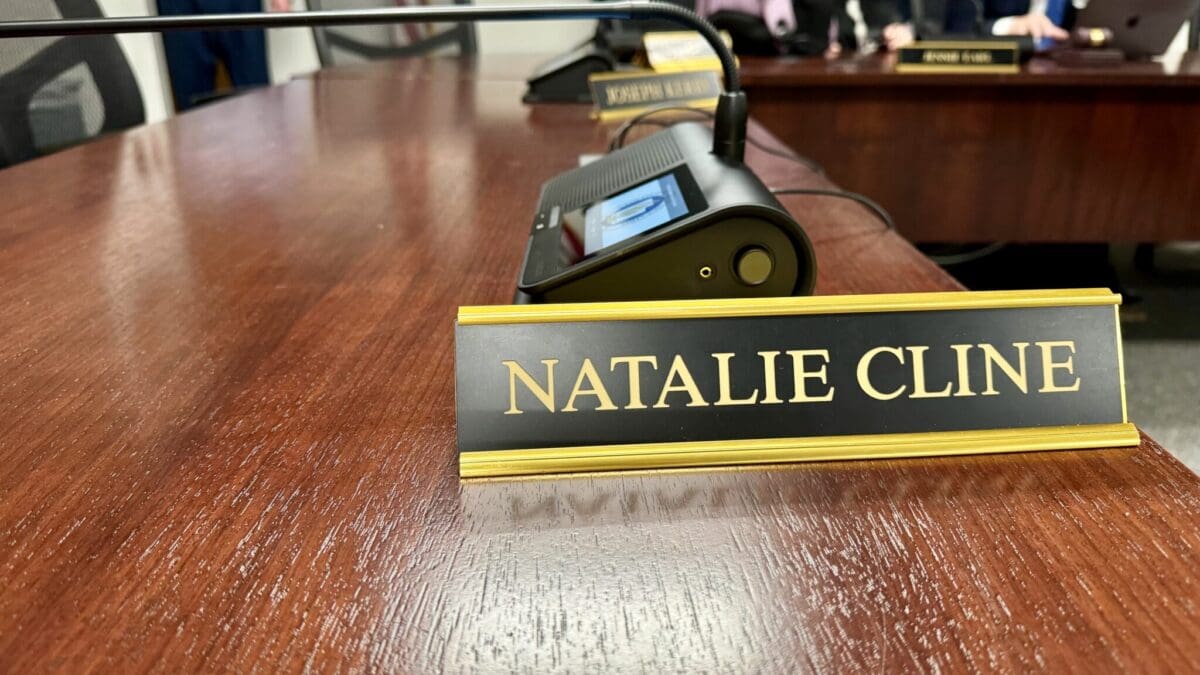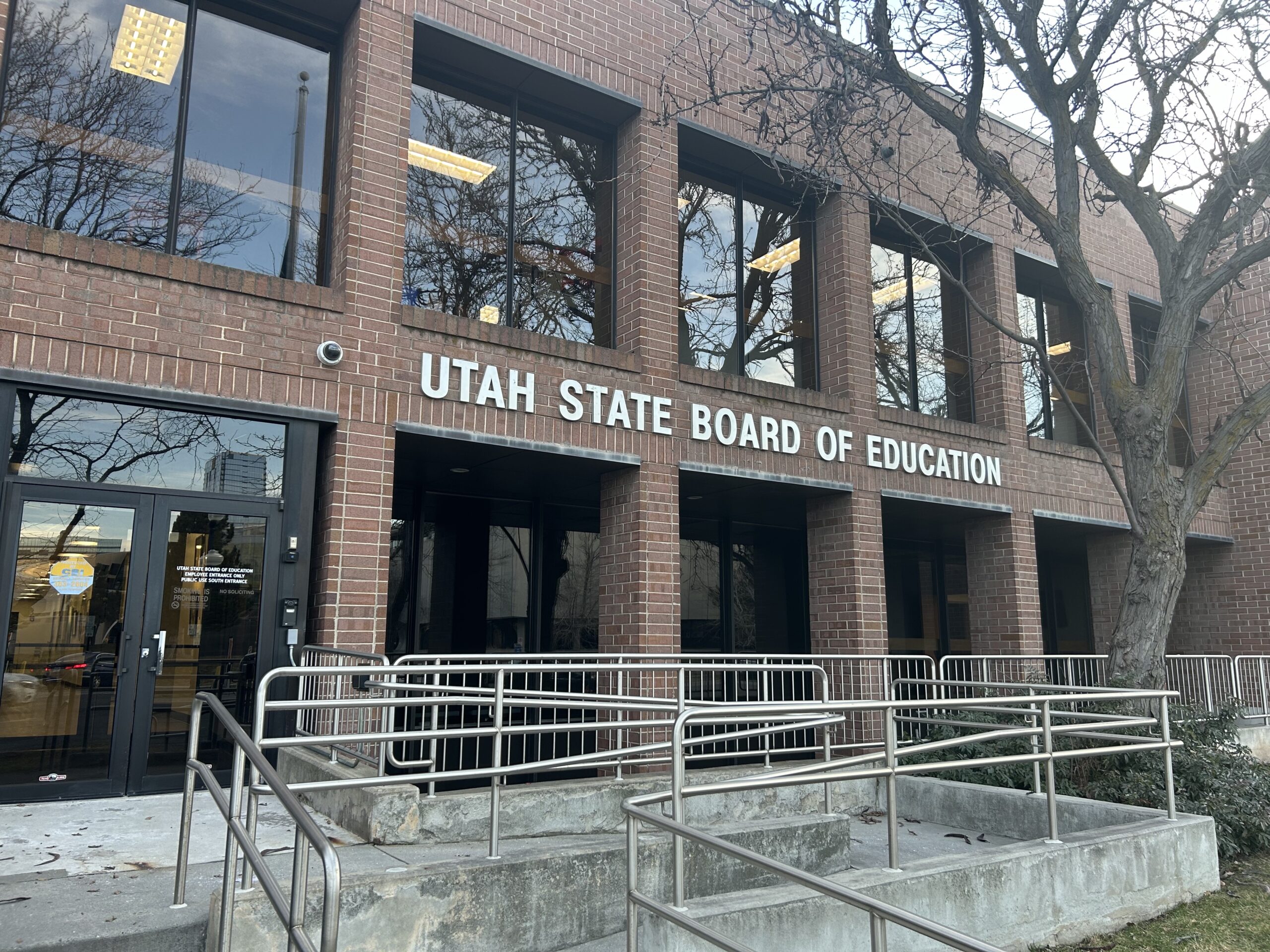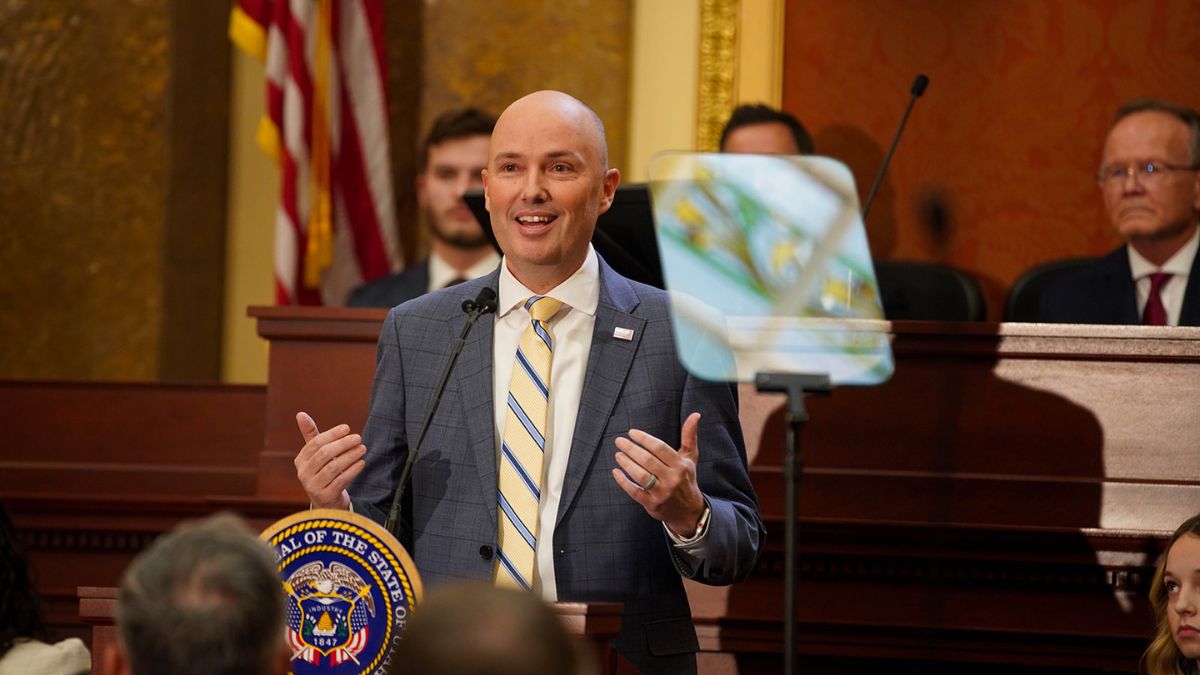Education
Utah Board of Education censures embattled member Natalie Cline, calls for her resignation

The seat for Utah State Board of Education member Natalie Cline sits empty at a meeting where the board voted to censure her and call for her resignation on Wednesday, Feb. 14, 2024. Photo: Utah News Dispatch
By: McKenzie Romero, Utah News Dispatch
After three hours of closed-door debate, the Utah State Board of Education voted unanimously to call for the resignation of board member Natalie Cline and to issue a scathing censure that strips her of several avenues of participating on the board.
Cline was not in attendance for the executive session or the vote Wednesday night.
The censure includes removing Cline from all committee assignments, prohibiting her from placing items on board agendas, and restricting her from attending board advisory committee meetings. The censure is effective through the end of the year.
“The action we took today really signifies how seriously we took this issue,” Kelsey James, board communications coordinator, told reporters after the meeting had adjourned.
“From the board’s discussion with our legal counsel, this represents what the board has the power to do as far as disciplining a member of the board,” James said. “This is the extent of action that the board could take.”
The board met behind closed doors after Cline became the subject of swift and far-reaching public outcry last week when she posted a photo on social media of a female high school athlete, implying she was transgender.
Comments on the post turned ugly, including identifying the girl and her school and prompting security concerns, until Cline eventually deleted it.
Cline later shared an apology for the “negative attention” her post brought on the girl and her family, while also commenting on the girl’s appearance and saying “it is normal to pause and wonder if people are what they say they are because of the push to normalize transgenderism in our society.”
Calls for Cline to resign have come from Utah Gov. Spencer Cox and Lt. Gov. Deidre Henderson; the Granite School District Board of Education, where the girl attends school; individual city councils; and the girl’s parents.
Meanwhile, the Utah House has allowed a bill file to be opened, allowing a possible route for lawmakers to pursue action against Cline, including potentially impeachment proceedings.
Before the vote was taken, member Christina Boggess sought to separate the call for Cline to resign from the motion to censure her, saying whether or not Cline remains in office is up to her constituents. The motion ultimately failed.
“I do believe that the will of the voters will prevail as this is an election season,” Boggess said.
Board member Emily Green said that in terms of Cline’s free speech rights, “it’s crucial to remember that those rights come with responsibilities.”
“Free speech does not grant anyone the liberty to target, intimidate or harm young students; for me that line has been crossed,” Green said. “The safety and dignity of our children must always be a priority. Any action that compromises these should be met with serious scrutiny and accountability.”
Ahead of the vote, chair James Moss spoke to some board members concerns about not just the anger that was stirred up by Cline’s post, but also animosity that has surfaced in the various responses to it.
“We’re seeing far too much animosity, too much shaming, too much spreading of fear and division. So I think we’re united in trying to move beyond that,” Moss said.
He noted that he believed the post was done with intent and in a way that invited scrutiny and shame.
In a new social media post early Wednesday ahead of the state school board’s executive session, Cline decried the meeting as election interference, saying she would like to defend herself, but that the Board of Education’s process was moving so fast she didn’t have adequate time to review their materials, gather witnesses and prepare her defense.
“Hardened criminals get better due process than I am being provided. Is a decision by the Board legitimate if you don’t provide the accused with proper due process rights?” Cline wrote.
Cline also included screenshots of an email she sent to state school board members, saying the board has “harassed me on multiple occasions for my social media posts in what appears to be a concerted effort to destroy my reputation with my voters.”
Before starting the meeting, the Board of Education issued a letter saying it, along with legal counsel, had evaluated Cline’s claims of election interference — Cline claimed the board was acting within 60 days of her primary election, favoring her Republican opponent — and determined they were unfounded.
According to the state school board, the Salt Lake County Republican Convention on April 13, which Cline pointed to, does not constitute a “regular primary election.” Additionally, the timing from Feb. 7, the date the complaint against Cline was filed, is 66 days from the Salt Lake County Nominating Convention and 139 days from the Utah State Regular Primary Election.
Cline is up for re-election this year. She’s being challenged in the Republican primary by Amanda Bollinger, a Jordan School District administrator. Her Democratic challenger is Will Shiflett, executive director of a business program at Salt Lake Community College.



















